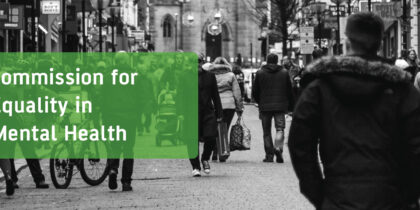The Government’s Autumn Statement today should help to ease some of the most immediate threats to the nation’s mental health, but for many people poverty and gaps in public services will continue to pose serious risks to wellbeing, Centre for Mental Health says today.
Centre for Mental Health welcomes the Chancellor’s decision to uprate means-tested social security benefits in line with September’s inflation figure of 10.1% in April next year. But it will leave millions of people living in poverty unless further steps are taken to raise benefit levels and to end discriminatory rules such as the two-child limit on child benefit payments. We are also disappointed that the Government has not removed conditionality from out-of-work benefits that put people’s mental health at risk from the use of sanctions.
The Centre also welcomes the increase in the Living Wage: a vital protection for the mental health of people on low pay. It is vital that employers pay all of their staff and contractors a fair wage that allows them to live in the current crisis in living standards.
The Chancellor’s pledges to increase NHS spending over the next two years, and to develop a robust NHS workforce plan, will be welcome. It is essential that promises made to expand mental health services in the Long Term Plan are kept. The £2.3 billion pledged for better mental health services must be delivered, with additional funding made available to cover inflationary pressures on what that will provide. And it must be accompanied by further investment in social care for people with mental health difficulties.
The New Hospitals Programme has given little attention so far to mental health services. Only two of the 40 schemes announced previously were for mental health care, leaving many outdated and dilapidated buildings to provide care for people needing urgent treatment. Future capital spending in the NHS must put this disparity right as a matter of urgency.
It is disappointing that the Autumn Statement makes no new pledges for public health spending. Local councils’ public health services play a vital role in supporting better health and preventing illness. They urgently need extra funding to offset the dramatic reductions they have had since 2015.






